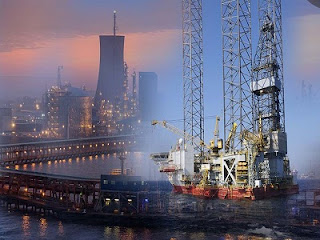Methyl Tert-Butyl Ether (MTBE) has become a focal point in the global market due to its widespread applications in the petroleum industry. As an oxygenate additive in gasoline, MTBE enhances combustion efficiency and reduces air pollution by decreasing carbon monoxide emissions. In recent times, the MTBE market has witnessed fluctuations in prices, influenced by a myriad of factors.
The primary driver of MTBE market prices is the demand-supply dynamics within the petroleum sector. With an increasing global demand for gasoline, the need for oxygenates like MTBE has surged, driving up its prices. However, the market is also sensitive to fluctuations in crude oil prices, as MTBE is derived from the refining process. Any disruption in the crude oil supply chain, geopolitical tensions, or economic uncertainties can directly impact MTBE prices.
Environmental regulations play a crucial role in shaping the MTBE market landscape. Stringent emission standards imposed by governments around the world have led to a higher demand for cleaner-burning fuels, propelling the use of oxygenates like MTBE. Conversely, regulatory changes restricting or banning MTBE in certain regions due to concerns over groundwater contamination have the potential to disrupt the market, causing price fluctuations.
Get Real Time Prices of Methyl Tert-Butyl Ether (MTBE): https://www.chemanalyst.com/Pricing-data/methyl-tertiary-butyl-ether-81
Market players are constantly innovating to enhance the production processes and explore alternative feedstocks for MTBE synthesis. Technological advancements that improve efficiency and reduce production costs can lead to a more competitive market, potentially influencing prices. Additionally, shifts towards bio-based MTBE, produced from renewable resources, can introduce new dynamics to the market and impact prices as sustainability becomes a key consideration for industries and consumers alike.
Global economic conditions also exert a significant influence on the MTBE market prices. Economic downturns can result in decreased industrial activities, leading to reduced demand for gasoline and, consequently, MTBE. Conversely, periods of economic growth tend to boost industrial production and increase the demand for transportation fuels, positively impacting MTBE prices.
Trade dynamics and geopolitical factors contribute to the volatility in MTBE prices. Changes in trade agreements, tariffs, or geopolitical tensions can disrupt the supply chain and impact prices. Moreover, the global nature of the petroleum industry means that events in one part of the world can have cascading effects on the entire market, leading to price fluctuations.
The shift towards renewable and sustainable energy sources also has implications for the MTBE market. As countries and industries increasingly adopt cleaner energy alternatives, the demand for traditional fossil fuels may decline. This shift can affect the overall demand for gasoline, influencing the need for MTBE in fuel formulations and subsequently impacting its market prices.
In conclusion, the Methyl Tert-Butyl Ether market is dynamic and influenced by a complex interplay of factors. From supply-demand dynamics and environmental regulations to technological innovations and global economic conditions, each element contributes to the ebb and flow of MTBE prices. As the world continues to navigate towards a more sustainable future, the MTBE market is likely to witness further evolution, with prices reflecting the ongoing shifts in the energy landscape. Staying abreast of these multifaceted factors is essential for businesses and stakeholders seeking to navigate the intricacies of the MTBE market and make informed decisions in this ever-changing environment.
Contact Us:
ChemAnalyst
GmbH – S-01, 2.floor, Subbelrather Straße,
15a Cologne, 50823, Germany
Call: +49-221-6505-8833
Email: sales@chemanalyst.com
Website: https://www.chemanalyst.com

